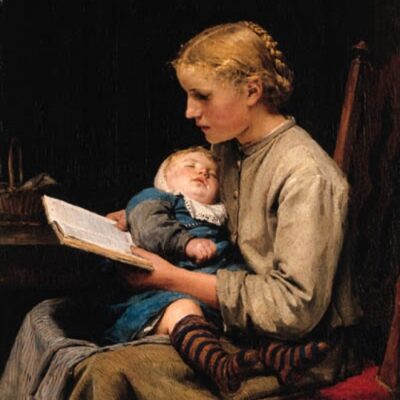A Thousand Ships by Natalie Haynes
Natalie Haynes, in her new novel A Thousand Ships, explores the Trojan War through the experiences of the goddesses, princesses, Amazons, townswomen, and captives who in some cases drove it forward and in others suffered the consequences. [C.P. Lesley, Novelist]
The blind poet Homer once told of armies of men, of gods, of monsters, of death and life, joy and pain, and life after death. Natalie Haynes tells the same story through the female poet Calliope, who sings of the forgotten, of women, the ignored, not just one woman or two, but of all of them. She justifies the story with the fact that war does not affect only half of the lives of the people it touches, and females are equal heroes. In this writing she shows heroism can reside in everyone, not just men any more than the consequences of the tragic roles belong just to women. “Survivors, victims, perpetrators, these roles are not always separate. People can be wounded and wounding at the same time or at different times in the same life.” [Book Review by Patti Leeman]
In Homer’s epic poems, he invokes Calliope as his muse, asking her to inspire him to sing and tell his story. In A Thousand Ships, Natalie Haynes also begins with an elderly male poet calling upon the muse Calliope for inspiration. (I imagined the poet to be Homer, writing another epic.) She says ‘yes’ but is weary of the same old stories and so states:
“But I am not in the mood to be a Muse today. Perhaps he hasn’t thought of what it is like to be me . . . like all poets, he thinks only of himself . . . how many other men there are like him . . . all demanding my unwavering attention and support. How much epic poetry does the world really need?” [New York Journal of Books: A Thousand Ships]
She demands a price for her inspiration – she’ll only sing if the poet gives up something he values. He must give up his own story, his own experiences, and embrace the stories of others. She tells him:
There are so many ways of telling a war: the entire conflict can be encapsulated in just one incident. One man’s anger at the behaviour of another, say. A whole war – all ten years of it – might be distilled into that. But this is the women’s war, just as much as it is the men’s, and the poet will look upon their pain – the pain of the women who have always been relegated to the edges of the story, victims of men, survivors of men, slaves of men – and he will tell it, or he will tell nothing at all. They have waited long enough for their turn. [B. Morrison: A Thousand Ships]
Calliope’s response to Homer’s need for her help sets the stage for the novel’s exploration of the Trojan War, focusing on the experiences of women, a perspective often overlooked in traditional narratives. In this new Calliope-inspired epic, we are thrown into the events following the Greek’s destruction of Troy as described in the Iliad; only this time we experience the destruction of Troy — the pain and suffering — from the viewpoint of Aeneas’ wife Creusa. The narrative continues: consisting of a collection of vignettes and interrelated stories including a large amount of dialogue among the Trojan women who have now been rendered powerless by the victorious Greeks and prepare to learn their fates.
I loved the idea of writing the effects of war from women’s perspectives and sadly the issues they voice are every bit as relevant today as they were in the patriarchal societies of ancient Greece and Troy: women as property, women as sex objects, women who are invisible, men who don’t listen to women, women who have to live off men: basically: women defined by their relationships to their husbands, fathers, and sons.
One of my favorite chapters came quite early in the book: Chapter 7–Penthesilea. In this chapter, Achilles defeats the formidable warrior queen of the Amazons, Penthesilea. The quote on page 55, describes his emotional response to defeating this well-respected warrior, even if she is his enemy.
He felt a sudden wrench of shame. Not because he had never killed a woman before. He had only a hazy recollection of most of the people he had killed: one death was so much like another, after all. But the Myrmidons had devasted so many towns in surrounding Phrygia throughout this war, he must have killed dozens of women as he went. Not all of them had offered themselves up as slaves or concubines; some must have refused to abandon their husbands or chosen to try to protect their children, whom he would also have killed moments later. He could picture none of them. Even the face of Hector, the one man he had killed in rage rather than because slaughter was what he was for, even that was sliding away from him now as the months wore on. But the fact contorted in pain in front of him was like nothing he had ever seen, and he knew that he had finally committed the one act he would regret. This woman was his mirror image, just as Patroclus had once been. He gasped as the blood bubbled up between her lips. He, who had never shown hesitation or fear. He watched her eyes cloud, like cataracts forming. He saw her open her mouth and say a single phrase, and then he saw the light darken. He looked up at the sky, filled with horror, and heard a coarse voice laugh behind him. He turned and stabbed the man without thinking: he would never know who it was he had killed. He saw other Greeks back away from him, afraid he would turn on them too. He gave it no further consideration, thinking only of the woman and her blood-filled mouth.
He wondered if anyone else had ever died saying the words, ‘Thank you.’ [pp. 55-56]
A Thousand Ships was shortlisted for the Women’s Prize for Fiction in 2020 and was named best book of the year by several publications including NPR and The Guardian. I recommend it because of its spotlight on the effects of war on women including violence, loss and disempowerment, its richly portrayed characters, and its thought-provoking themes that force us to consider our beliefs about gender roles, power dynamics, and the enduring legacy of conflict.
To view Natalie Haynes taking a fresh look at the ancient world including creating stand-up routines about figures from ancient Greece and Rome check out “Natalie Haynes Stands Up for the Classics.”
Check Amazon for more on this book I love.


















Oh this sounds so interesting. I also appreciate history told by female voices. When I was 14 I was in a production of Euripides THE TROJAN WOMEN. I have always thought of war from the female perspective since. Thanks Kate for the terrific review.